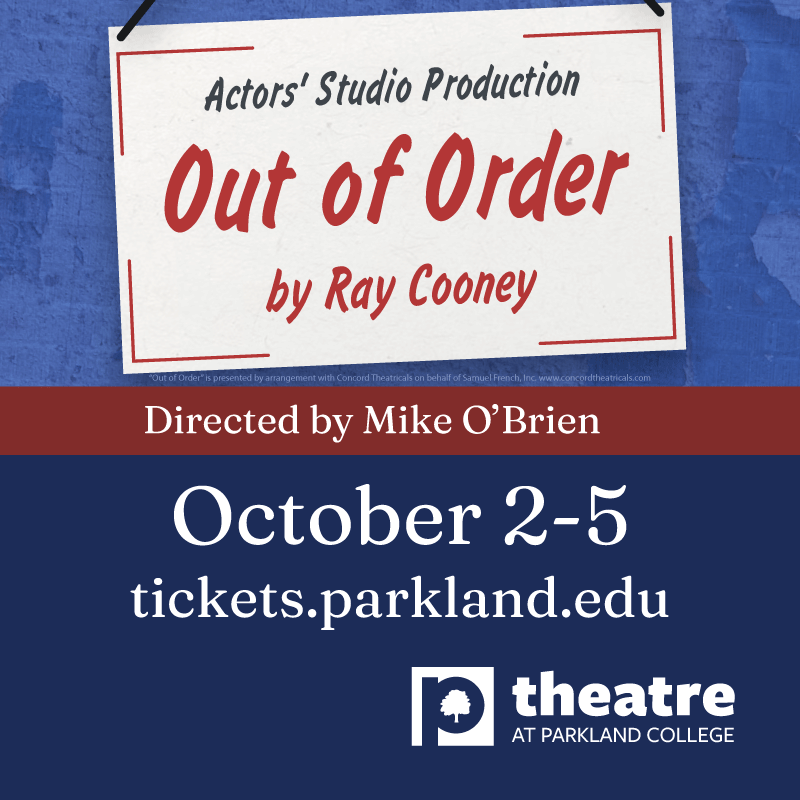EDITOR’S NOTE: Each week the Mahomet Daily will feature residents of East Central Illinois who have done the little things in their lives to make a difference in moving equality for all forward. This project is in partnership with the Museum of the Grand Prairie, which is collecting stories for their This Legacy is Yours project. To learn
more visit http://www.museumofthegrandprairie.org/exhibits.html.
For Hattie Paulk, love conquers all.
And in her 79 years, she’s seen it all.
“My family (parents Robert Lee and Marcella Chipman Taylor) was one of the first black families to settle in Champaign-Urbana,” Paulk said. “My grandfather worked like a sidewalk politician who would organize people in the community. My aunt and uncle were the founders of the First Church of God in Christ in Champaign.”
It wasn’t just the Taylors who were organizing for their community,
though. Paulk looks back fondly on her days at the Neighborhood House, a recreational space for African Americans who were denied access to local facilities because of segregation.
“Community, to me, is what I saw here in Champaign. You saw community in action,” Paulk said.
Coming down Fourth and Fifth streets in Champaign, Paulk remembers seeing groups of people stepping up to cover funeral expenses and people bringing each other meals.
They were even able to set up their own medical service, Frances
Nelson, to serve People of Color when no one else would.
“I think charity begins at home. And then it spreads,” Paulk said.
The Neighborhood House, now known as the Douglas Community Center, was a community effort. Not only did the community raise funds to erect the building, they also worked together to provide opportunities for children and adults through community movies, athletic opportunities, a skating rink and the Drum Corps and Drill Team.
Former Director Erma Bridgewater led a group called the Clovers and
the Duchess, which Paulk was part of, that did community work,
including fundraising for UNICEF.
As Paulk got older, she became an instructor with the Drill and Bugle
Corps, helping young women learn the techniques needed to compete against other teams.
At that same time, Paulk was part of the Columbia Elementary School
staff. She learned that the children had never seen a Black Santa
Claus.
“That kind of put me into that mode, that if your black children
thought everything was coming through a white Santa Claus, you had a misconception as to what it was really all about,” Paulk said.
Paulk worked with the local fire department and Sullivan Parkhill to
bring Santa and two children, the King and the Queen, to the Douglas
Center. The Drum Corps, led by Milton Norwood (aka “Butterball),
provided the entertainment as the parade pulled in.
But as a staff member at Columbia, Paulk saw that it wasn’t just the
Black children who were underrepresented, but other children, too. As the years went by, Paulk made sure that other Santas of different
ethnicities came to visit the children.
And that, creating a space for families to come, feel welcome and not
isolated from the system, is what Paulk spent her personal and
professional life doing.
One of Paulk’s first initiatives within the Unit 4 District was to
teach students the significance of budgeting.
“(Students) would set up savings accounts, right there in the school,”
she said. “They would come in and the kids would bring a little money, put it in their savings account. And many of the families were able to do the same thing and start a savings account where they could learn how to manage your money as well.”
Columbia also started an initiative for parents to find work when they
needed a little extra money.
“We would go into the family’s home and see what the needs were and help provide jobs for families,” she said.
Paulk said the experience brought purpose and value to some parent’s lives.
“One of the fathers was able to come in there and learn how to work
with children. And that was to give him value. For him to say, ‘I can
do this.’ We taught him how to go into the homes with kids, work with
the family, and be able to assist them and in other ways.
The sense of community that Paulk built in her first years led to a
new opportunity. She was named the Director of the Family Information Center in Unit 4.
Paulk worked to ensure a decent degree with the hiring process and
School Choice was run with integrity in the Unit 4 system.
But she knew that there were still needs to be met for families and
the community at large.
“One day I was headed to work, coming down First Street, and there was a young man with his little boy, running, and they were shaking
because they didn’t have a coat on,” Paulk remembers. That just kind of got to me and I began to cry. That was when we started that
Warm-a-Kid Drive.”
Over the last 21 years, funded through donations from the local
community, Paulk’s vision provided thousands of coats for children in
the Champaign-Urbana area.
“The schools would let us know who needed coats and the sizes they
needed,” Paulk said. “The other thing that we found was that families
who may have had rough times were people willing to help with that.”
It was also important to Paulk that students who were also giving back to their community in their own ways were acknowledged. She started the Young Achievers Award Program that recognized 150 students during her time.
It was a big idea that got bigger.
Soon Stratton, Barkstall and other Unit 4 schools began recognizing
their students through teacher nominations for anything from perfect
attendance to doing something small for someone else.
Students were honored in a ceremony at the Krannert Center to receive their award on a red carpet provided by Mike Namoff.
“And then we didn’t stop there, we gave parents awards for the effort
that they did to do what they could for the children,” Paulk said.
They received a bumper sticker to show that their student was a Unit 4 Young Achiever.
The needs within the community didn’t stop there, though. Paulk worked with volunteer physicians at Carle and Christie who would come to Unit 4 schools to ensure that every child could receive a physical and vaccines in order to attend school.
Meeting the needs of thousands of children who come through the Unit 4 District year-after-year was constantly on Paulk’s mind, just like
meeting the needs of her own four children, and the needs of the 100
foster children she had.
As a Black woman, Paulk was not allowed to foster white children.
She fostered a girl from Africa whose mom beat her.
“She ended up going to two different homes, and she didn’t make it
there,” Paulk said. She came to me and she grew up here with me. She ended up going to the University of Illinois graduating from there,
and then went to New York and graduated for her master’s degree.”
Paulk still stays in touch with her. And she likes to see other foster
children, now adults, around, too. She ran into one man not too long
ago.
He told her, “I want you to know because of the integrity which you
taught me, ethic about working, I now have my own business.”
Paulk took her community spirit with her to Germany where she stayed while her husband was in the Air Force.
“I got hired as a Director for the Airman’s Club,” she said. “I did
fashion shows for the military kids. We had programs each month to
help the people that were in the military over there.
“I also did it in Louisiana, with the youth as the Director of the
Youth Center.”
Working for individuals to have what they need came with Paulk
stepping over societal hurdles, too.
“I’m a minister,” she said.
“In the church, at least at that time, women were not allowed to be
ministers, at least in the black community.
“As far as a woman in the ministry that was basically a no-no.”
Paulk was told by a pastor that she had a lot of talents and a great
calling in her life, but she was not meant to be a minister.
“I love the church; I love the people, but I love the Lord more and
I’ve got to be obedient to his calling. That’s when I ended up leaving
the Baptist Church. I ended up going to the Church of Living God and
that’s where I was ordained.
“I could see that my vision was to do what God had called me to do,
and I felt that was to help people. That’s what I feel my calling is:
to reach out and help.”
Just the other day, Paulk saw a man at Family Dollar without any
gloves. She asked her daughter to go back in and buy him a pair.
“I think a lot of times what we’ve got to do is really listen to our
heart,” Paulk said.
“I think that’s the way God speaks. Then we need to be able to stop
and listen, and then move into those areas that he’s telling us to go
into.”
Perhaps some of those spaces were places she was unwelcome in because of the color of her skin.
“We had to walk when we were growing up,” she said. “You didn’t really have buses. Later on, buses would come and pick up black kids from the northeast, but we had to walk to school, from the northeast. In the same way, I went to the all-black elementary school.”
“Back then, we could not sit at WT Grants in downtown Champaign,”
Paulk said. “That was like a department store, and it had an area
where you could eat it at the counter. And we, as black people, were
not allowed to eat at that counter.
“When we were part of the protests we went and we would sit there and we got pushed and pulled off of those seats.”
At other establishments, Paulk remembers being able to get food to
take away and eat, but not being able to dine in.
The protests Paulk referred to was a Picketing Campaign in front of JC Penny’s in downtown Champaign in 1961. African-Americans were protesting unfair employment practices in downtown Champaign.
“I got spit on, called the n-word, all of it,” Paulk remembers.
One of the barriers that Paulk overcame was being hired at Jewel Osco in Champaign when they had not previously hired a Black person.
“We marched for civil rights so those things would be changed,” she said.
“Those are things that you went through, to endure, so that it would
make a change in people’s perspective; to be more accepting of each
other’s differences. And to make a difference where there would be a
change.”
“I went through that so my kids wouldn’t have to go through that.”
Paulk has been recognized for her efforts in the classroom and in the community.
In 2000, she was inducted into Parkland College Society. She received a Bachelor of Arts Degree from Eastern Illinois University,
in Charleston, and in 1989, received the U.S. Outstanding Adult Award.
“I was one of eight in the nation chosen as an Outstanding Adult,” she
said. “I got to go to Washington D.C., with the president of Eastern
Illinois University.”
At a breakfast with Senators and Representatives, Paulk reminded
everyone to thank the Lord.
“We’re getting ready to eat and I told them, in front of all these
senators, the representatives and the TV cameras, I said ‘You know
what, we would be remiss if we didn’t stop and pray and ask God to
bless. Would you bow your heels and pray with me?’ And they did.”
It wasn’t the first time that Paulk said something that worked to
build a new bridge.
When Dracy “Clint” Pendleton died in Southern Illinois after shooting
at a police officer in Mahomet, Paulk, along with a couple other Black
women, came to his memorial in Mahomet. Paulk said that she had hired Pendleton to work with her.
“I can tell you how he was with me,” she said. “When he worked for me at Unit 4, he was just a good kid. I don’t know what happened that
caused him to go off on the deep end, but I will always love that
boy.”
“Clint was like my son, a good guy,” she said.
As people spoke about Clint, Paulk said, “I’m his Black mama.”
That spirit of love, one that knows no bounds and sees hurdles for
what they are, is a gift of God, Paulk said.
“God has blessed me to have young people in my life,” she said. “He
has done so many things for me and I’ve been able to touch lives with
that. You just don’t know whose life you’re touching. But you do what
you can for other people. And it’s like tag: “You’re it, pass it on.”
Paulk is featured in the Museum of the Grand Prairie’s Legacy Wall.




